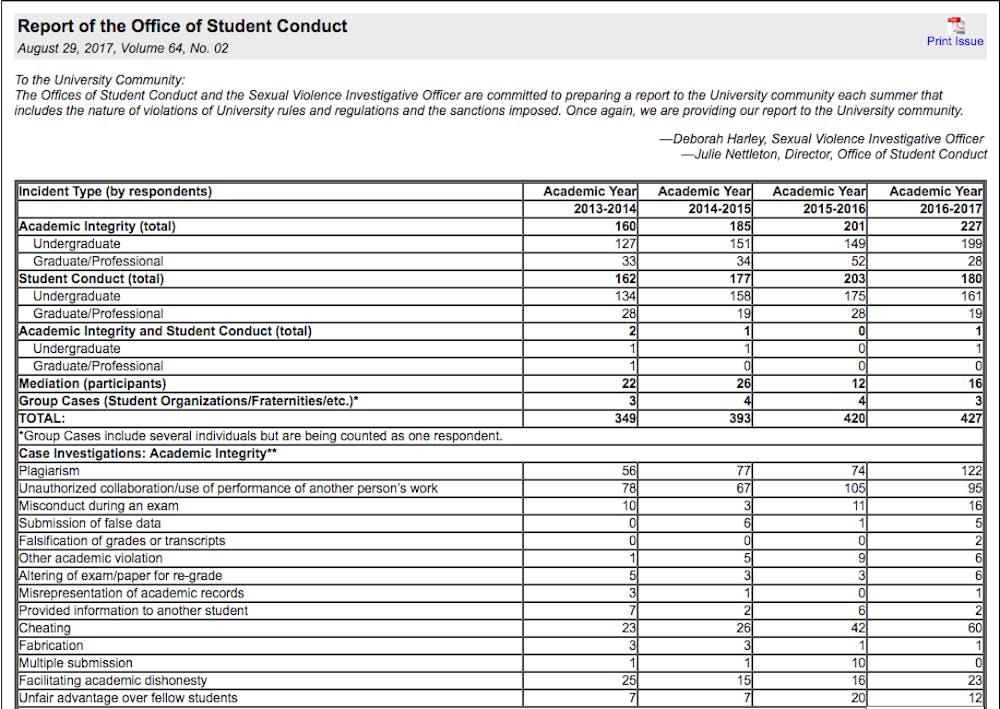
The number of reported cases of plagiarism and cheating has risen remarkably at Penn in recent years, according to information released Tuesday by the Office of Student Conduct.
In the 2016-2017 academic year, the most recent academic year for which complete information is available, OSC investigated 60 cases of cheating, a 161 percent increase from 23 cases in the 2013-2014 academic year. The report tells a similar story for cases of plagiarism. The office went from investigating 56 cases in the 2013-2014 year to 122 in the 2015-2016 year, a 118 percent jump.
Not all of these cases result in actual conduct violations — there has only been a 13 percent increase in total academic integrity violations from the 2015-2016 year to the 2016-2017 year. However, the substantial rise in investigations parallels a crackdown in higher education on sharing information in computer science courses.
As an entire category, academic integrity violations have been on a continual rise since the 2012-2013 academic year. The total number of incidents, which is fewer than the total number of case investigations, jumped up 11.45 percent from the 2015-2016 academic year.
OSC Director Julie Nettleton wrote in an emailed statement to The Daily Pennsylvanian that some of the increase in the number of plagiarism and cheating cases can be attributed to the more widespread adoption of Turnitin, which detects plagiarism in essays and matching code in computer science classes.
She also pointed to "relationship building" between OSC and students, faculty and staff over the past three years, adding that OSC "widely encourage[s] faculty members to consult with [OSC] when issues arise."
When The Daily Pennsylvanian previously reported on an increase in year-to-year academic misconduct cases, Nettleton said OSC deals with most academic misconduct by imposing sanctions, which usually involve writing an essay. Over the last four years, the number of punitive essay requirements has risen from 53 to 134, a 153 percent jump.
Reports of unauthorized collaboration, a category within OSC's report that presumably would cover cases of academic dishonesty in a computer science course, actually decreased from 2015-2016 to 2016-2017, from 105 to 95 case investigations.
Separately, Penn logged 180 student conduct violations during the 2016-2017 year, an 11.33 percent drop from the 2015-2016 year. The category of student conduct violations, which includes stalking, sexual violence and vandalism, totaled a recent high of 308 yearly violations in the 2010-2011 academic year. That number has dropped since then, despite a 44 percent increase in cumulative violations from 2011-2012 to 2015-2016.
This is the second straight year OSC has released its annual report in the fall. After failing to publish the report on an annual basis for four years, OSC released a backlog of reports in January 2015.
Assignments Editor Ally Johnson contributed reporting to this article.
The Daily Pennsylvanian is an independent, student-run newspaper. Please consider making a donation to support the coverage that shapes the University. Your generosity ensures a future of strong journalism at Penn.
Donate






